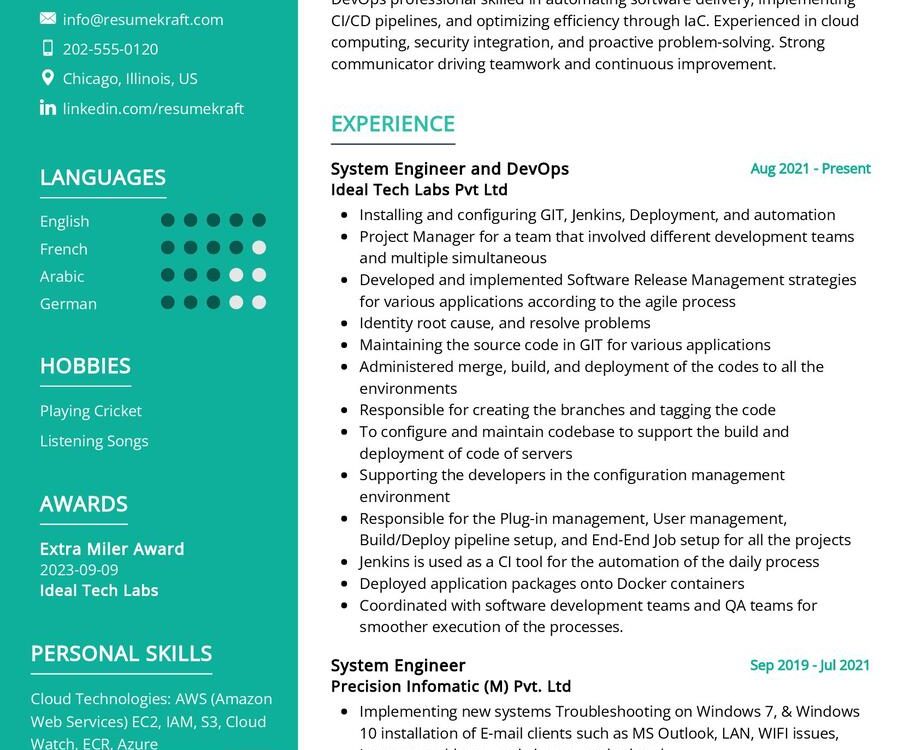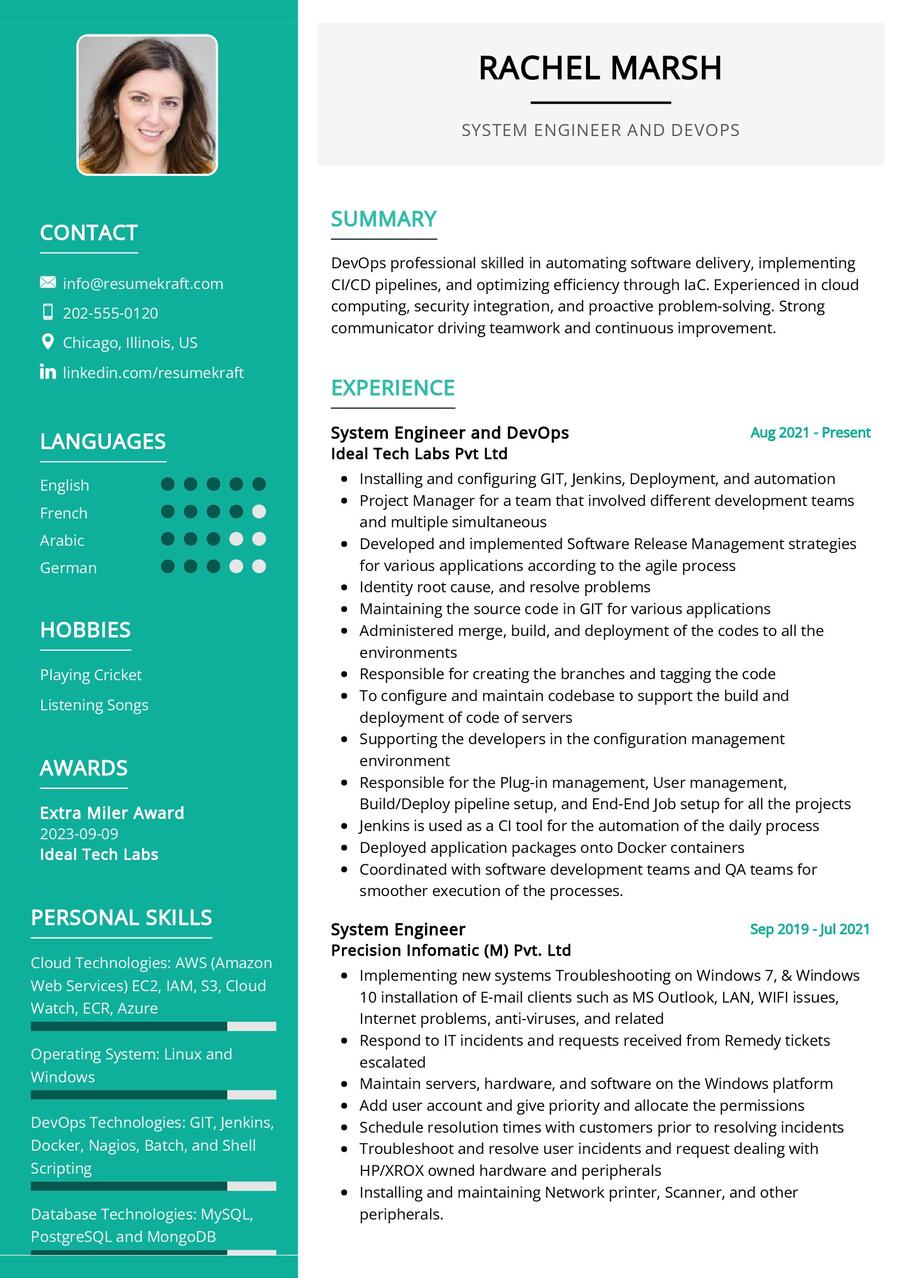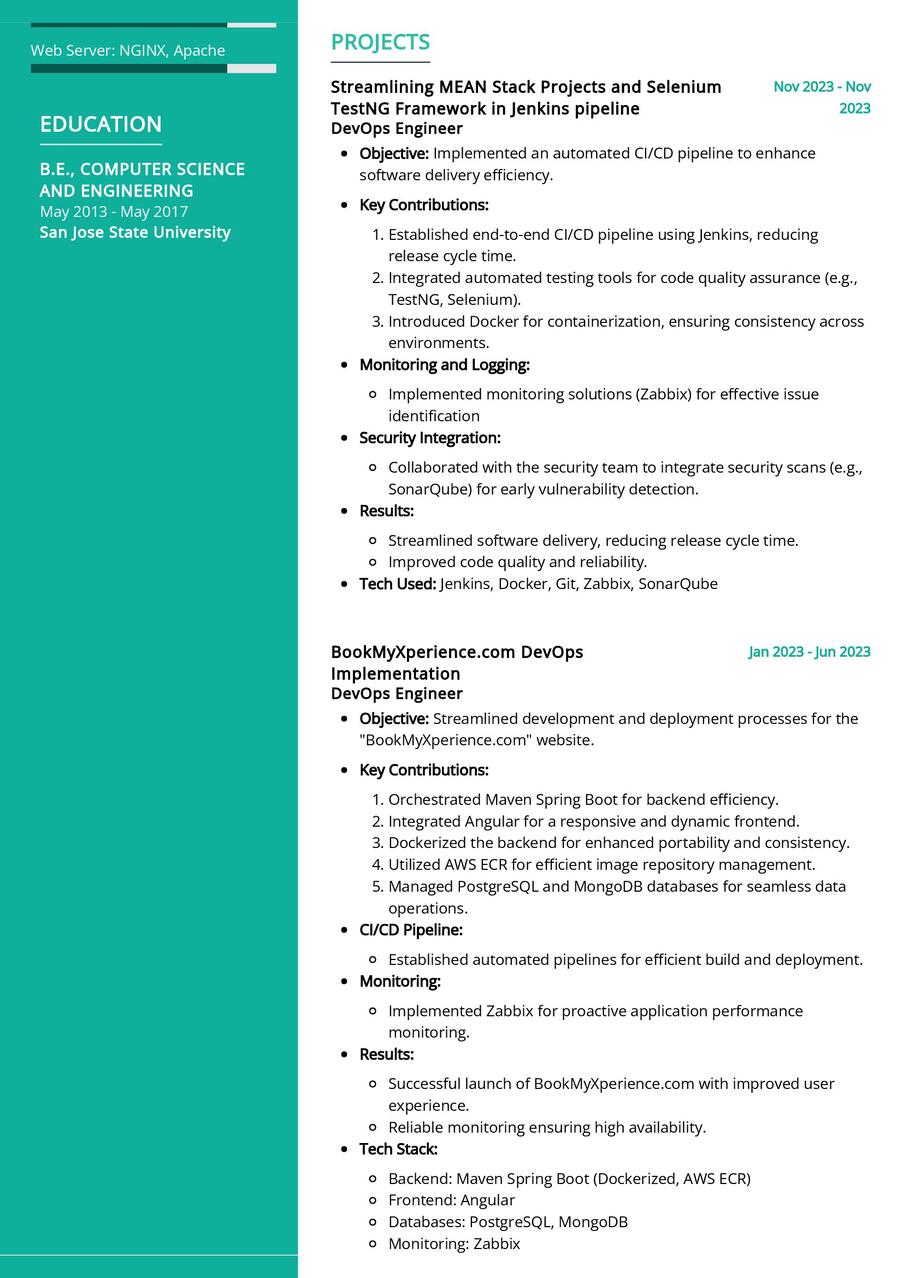Demystifying the Role of a System Engineer and DevOps Professional
As technology advances, the role of a System Engineer and DevOps professional has become increasingly crucial in the fast-paced world of IT. This position requires a unique blend of technical prowess and strategic thinking to streamline operations and ensure the seamless functioning of systems. Let’s explore the multifaceted responsibilities and requirements that define the role of a System Engineer and DevOps expert, a role at the forefront of modern IT infrastructure.
Understanding the System Engineer and DevOps Job Requirements
The journey to becoming a System Engineer and DevOps professional involves meeting a set of stringent requirements, a path that demands continuous learning and hands-on experience. Here’s a detailed look at the prerequisites to step into this dynamic role:
- A Bachelor’s or Master’s degree in Computer Science, Information Technology, or a related field, establishing a solid foundation in the technical domain.
- Extensive knowledge of system architecture, with a deep understanding of both hardware and software components.
- Proven experience in system administration and configuration management, showcasing a trajectory of increasing responsibility.
- Leadership and managerial skills honed through experiences and, possibly, through relevant courses and certifications.
- Proficiency in scripting languages such as Python, Shell, or PowerShell, essential for automating tasks and optimizing processes.
- Experience with cloud platforms like AWS, Azure, or Google Cloud, reflecting the modern trend of infrastructure as code.
- Ability to work under pressure and adapt to rapidly changing environments, a trait developed through years in the dynamic IT landscape.
Securing additional certifications in DevOps practices and specific cloud platforms can significantly enhance your profile in the competitive job market.
Key Responsibilities of a System Engineer and DevOps Professional
The role of a System Engineer and DevOps professional is multifaceted, involving a combination of technical expertise, collaboration, and strategic planning. Let’s delve into the core responsibilities that define this role:
- Designing, implementing, and maintaining system infrastructure to ensure optimal performance and scalability.
- Automating deployment processes and configuration management to achieve efficient and consistent system environments.
- Collaborating with cross-functional teams to integrate DevOps practices into the development lifecycle.
- Implementing continuous integration and continuous delivery (CI/CD) pipelines to accelerate software development and deployment.
- Monitoring system performance, identifying and addressing issues proactively to minimize downtime.
- Ensuring security best practices are integrated into the development and deployment processes.
- Providing technical leadership and guidance to the development and operations teams.
Each responsibility comes with its own set of challenges and learning opportunities, contributing to the professional growth of a System Engineer and DevOps expert.
Crafting a System Engineer and DevOps CV
Your CV is not just a document; it is a snapshot of your journey, skills, and aspirations. Here are some tips to create a compelling System Engineer and DevOps CV:
- Highlight your experience with specific system architectures and tools, showcasing your hands-on expertise.
- Detail projects where you implemented automation, illustrating the impact on efficiency and reliability.
- Quantify your achievements, using metrics to demonstrate the success of your CI/CD implementations or system optimizations.
- List relevant certifications, emphasizing your commitment to continuous learning in the ever-evolving field of DevOps.
- Personalize your CV for each application, aligning your skills and experiences with the specific job requirements.
Your CV is a narrative, and each section should contribute to the story of your growth as a System Engineer and DevOps professional.
System Engineer and DevOps CV Summary Examples
Your CV summary is the opening act of your career story, setting the stage for what follows. Here are some examples to inspire you:
- “Experienced System Engineer and DevOps professional with a proven track record in designing and maintaining robust infrastructure, adept at implementing automation for accelerated software delivery.”
- “Results-driven professional with a background in system administration and a passion for integrating DevOps practices, contributing to streamlined operations and increased efficiency.”
- “Detail-oriented System Engineer and DevOps expert, specializing in continuous integration and deployment, committed to ensuring secure and high-performing system environments.”
Each summary is a window into your career, offering a glimpse of your journey, strengths, and vision as a System Engineer and DevOps professional.
Building a Strong Experience Section for Your System Engineer and DevOps CV
Your experience section is the heart of your CV, pulsating with the rich experiences you’ve gathered over the years. It is a space where you narrate your career story, highlighting milestones and learnings. Here are some examples to guide you:
- “Led the implementation of a CI/CD pipeline, reducing software release cycles by 30% and improving overall system reliability.”
- “Managed the migration of on-premise infrastructure to the cloud, resulting in a 20% cost reduction and increased scalability.”
- “Collaborated with development teams to integrate security practices into the SDLC, ensuring secure code deployment and compliance with industry standards.”
Each experience is a chapter in your career book, narrating tales of challenges met, solutions found, and successes achieved.
Educational Achievements for Your System Engineer and DevOps CV
Your educational journey is the foundation upon which your career stands. It is a testament to your knowledge, expertise, and commitment to learning. Here’s how you can list your educational milestones:
- Master of Science in Computer Science, XYZ University, a journey of in-depth learning and specialization, 2018.
- Bachelor of Technology in Information Technology, ABC University, the stepping stone to your IT career, 2012.
- DevOps Certification, accredited by [Certification Body], validating your expertise in DevOps practices, 2019.
Each educational qualification is a stepping stone, leading you to the pinnacle of success in your career as a System Engineer and DevOps professional.
Skills Essential for Your System Engineer and DevOps CV
Your skill set is your toolbox, equipped with a diverse range of tools that you have honed over the years. It is a showcase of your abilities, both innate and acquired. Let’s list down the essential skills that a System Engineer and DevOps professional should possess:
Soft Skills:
- Leadership and team collaboration, the ability to guide teams towards success in a collaborative environment.
- Communication and interpersonal skills, the art of conveying technical information effectively and building strong professional relationships.
- Problem-solving abilities, the knack of finding innovative solutions in challenging situations.
- Attention to detail, the meticulous approach to ensuring the reliability and security of system environments.
- Adaptability and resilience, the strength to bounce back and adapt to changing technological landscapes.
Hard Skills:
- Proficiency in scripting languages such as Python, Shell, or PowerShell, crucial for automation and optimization.
- Experience with configuration management tools like Ansible or Puppet, essential for maintaining consistent system states.
- Knowledge of cloud platforms such as AWS, Azure, or Google Cloud, reflecting the modern trend of infrastructure as code.
- Understanding of containerization technologies like Docker or Kubernetes, facilitating efficient deployment and scalability.
- Security best practices, ensuring the implementation of robust security measures in system environments.
Each skill is a tool, aiding you in optimizing system performance and leading your team effectively in a DevOps culture.
Avoiding Common Mistakes in Your System Engineer and DevOps CV
As you craft your CV, it is essential to avoid common pitfalls that can hinder your journey to landing your dream job. Here we list down the mistakes often seen in CVs and how to avoid them:
- Avoid using generic language; tailor your CV to showcase your unique fit for the role.
- Focus on achievements rather than job duties, providing depth and context to your experiences.
- Don’t underestimate the power of a well-crafted cover letter; it’s an opportunity to connect with potential employers on a personal level.
- Balance technical details with clarity; avoid overwhelming your CV with jargon that may obscure your true value.
- Always proofread your CV to maintain a professional image; typos and errors can detract from your qualifications.
Each mistake is a pitfall, avoid them to craft a CV that is both authentic and compelling.
Key Takeaways for Your System Engineer and DevOps CV
As we reach the end of this comprehensive guide, let’s recap the key points to keep in mind while crafting your System Engineer and DevOps CV:
- Emphasize your hands-on experience with specific tools and technologies, showcasing your technical expertise.
- Highlight achievements and quantify impact where possible, demonstrating the success of your projects.
- Showcase your commitment to continuous learning, listing relevant certifications and ongoing educational pursuits.
- Personalize your CV for each application, aligning your skills and experiences with the specific job requirements.
Finally, feel free to utilize resources like AI CV Builder, CV Design, CV Samples, CV Examples, CV Skills, CV Help, CV Synonyms, and Job Responsibilities to create a standout application and prepare for the [job type] job interview.
Armed with these insights and tips, you are now ready to craft a CV that is a true reflection of your journey, your skills, and your aspirations. Remember, your CV is not just a document; it is a canvas where you paint your career story, a story of growth, learning, and leadership. Best of luck!



